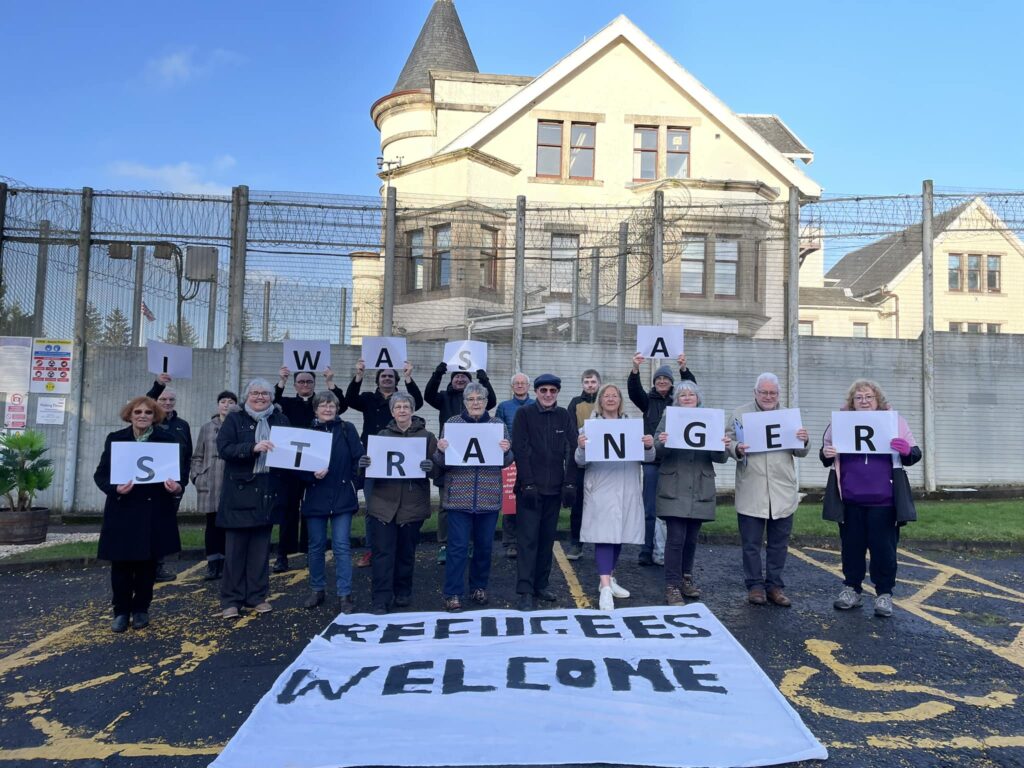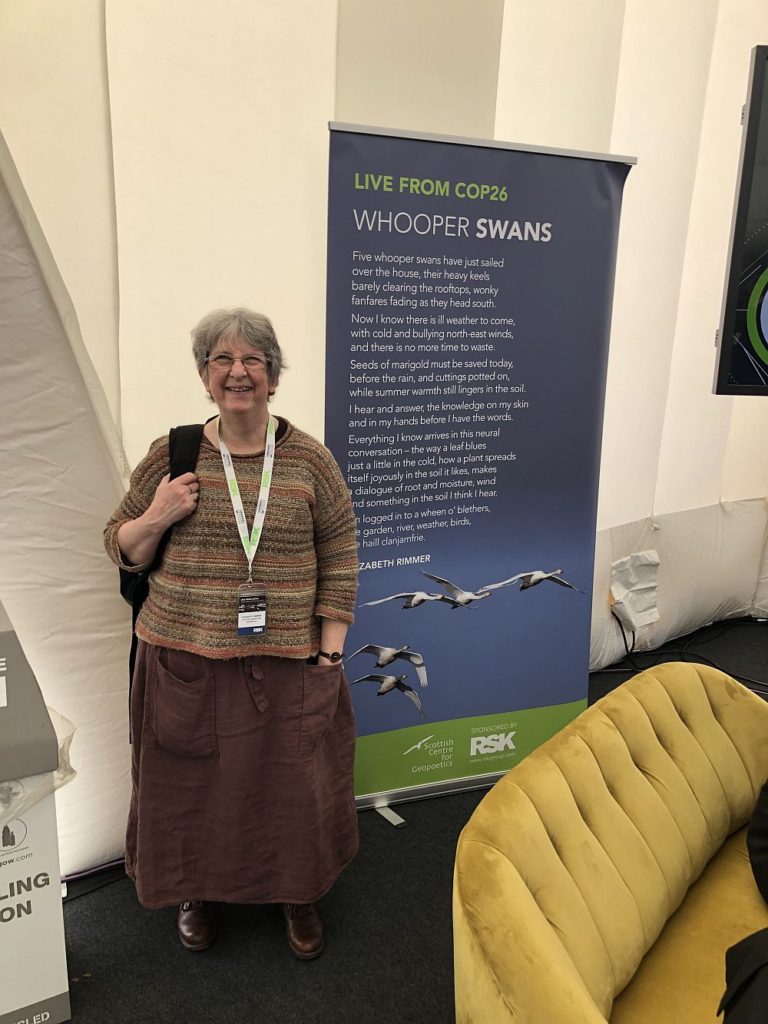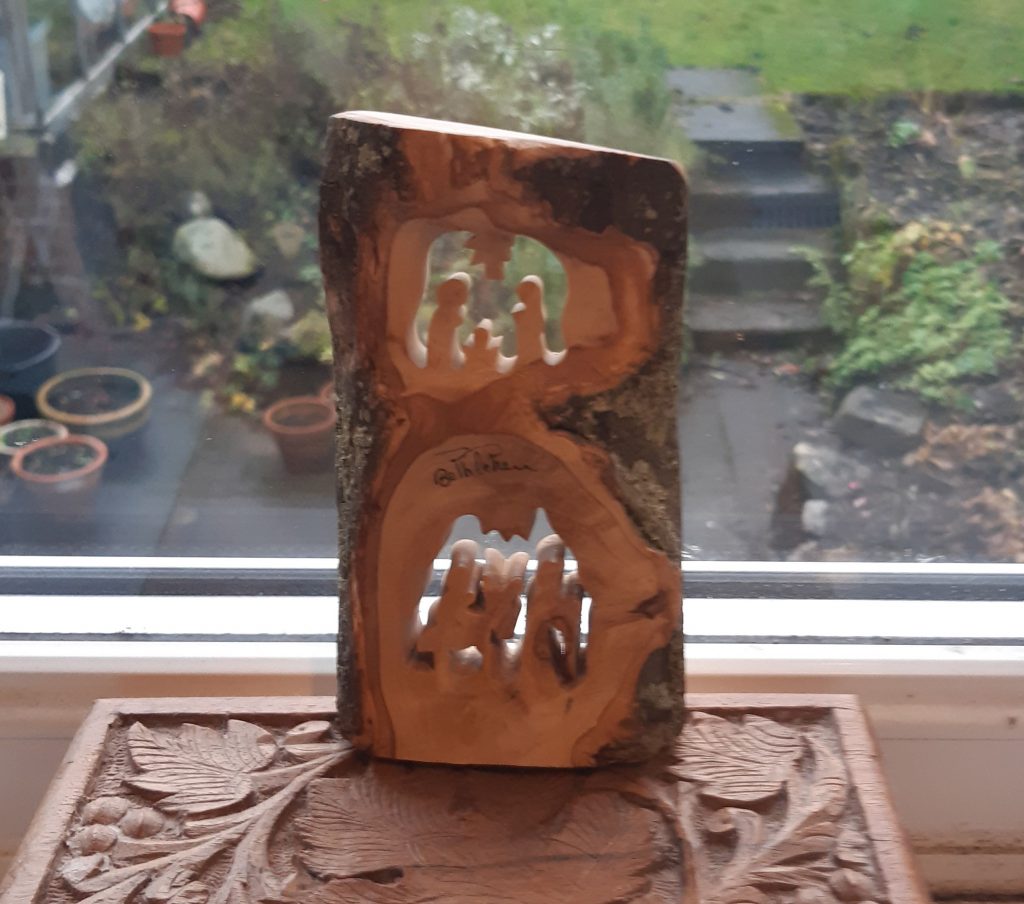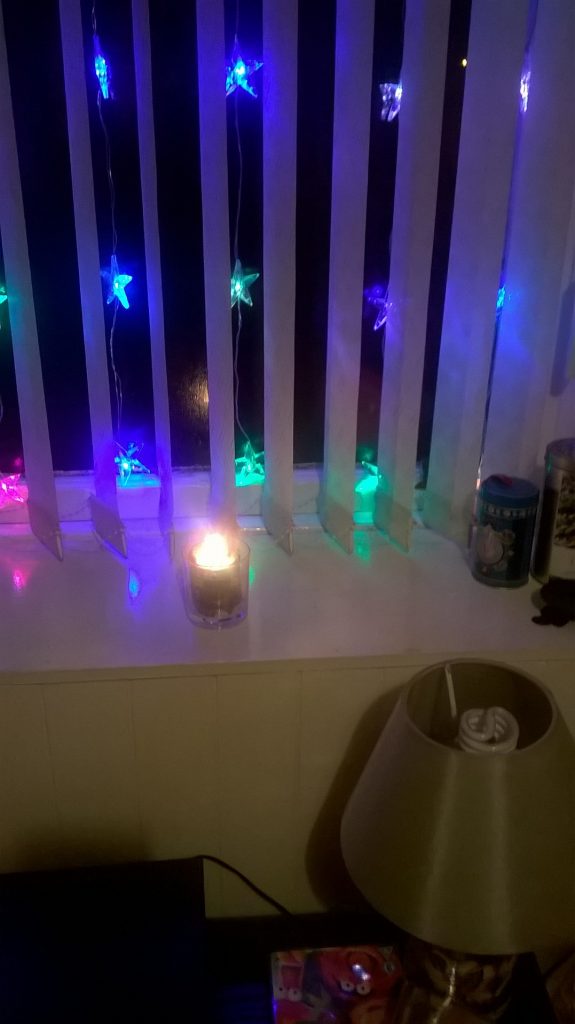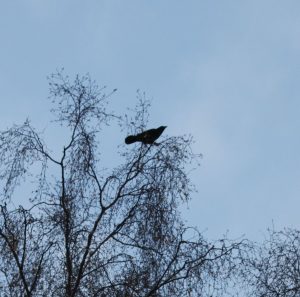There isn’t much of it. But if ever we could get the powerful ones together and make them listen to us, it’s now. So here is a canto from my long eco-protest poem The Wren in the Ash Tree which was published in Haggards in 2018. The Outcry isn’t mine – it’s the ‘outcry of the earth, the outcry of the poor’ which The Papal Encyclical Laudato Si’ talks about. And, just to add to the timely references, the line ‘enough of blood and tears’ was said at the signing of the Norway accords between Israel and Palestine in 1993.
Canto 1: The Outcry
The hanging man says,
‘Outcry of grief
goes up and down the world-tree,
grumble of ravens and chattering classes
in tweets and rumours on smartphones.
Her leaves are nibbled by squirrels,
in curtained bedrooms and behind
the facades of abandoned shops,
browsed to the bark by greedy stags,
in city suits and plate-glassed offices
her roots undermined by serpents
wasting the soil. The hedges are down,
the fenlands drained and the red dust
is washed off suburban car fronts.’
The wren is singing in the bramble bush.
The woman at the ford says,
‘On one bank of the river,
there is a lament for the fallen,
on the other, the outcry
of those who have lost everything,
and there is never enough
of blood or tears.’
El duende says,
‘This is the place of pain.
To sing here you will need
to open the heart,
the lungs and voice,
and meet it square.
You can’t sing from hiding,
nor drunk or afraid.
You can’t sing this softly
like chocolate in the sun.
You must give yourself
to the fight with all your strength.
It will take all you’ve got.
It will feel like death.’
The wren slips between the branches
of the birch tree without a sound.
And the field says,
‘You can’t write my music.
There ain’t no sixteen bars,
no twelve bar phrases here –
field music comes bursting
straight from the heart.’
The city is silent.
All the roundabouts
are wearing flowers
dressed in cellophane
and there are soft toys
on every doorstep.
The song from the city is sung
behind a proscenium arch,
in other voices, not ours,
And we are shamed by silence.
The wren is hidden
among the leaves of the ash
and sings without ceasing.
And the púca sings
in the depths of the sea,
‘The water is poisoned with oil
and the krill are scarce. We are hungry
and choking on plastic.
There are small boats, sinking
beneath the weight of sorrow
and the men with guns who turn
the lost ones away from their coasts.’
And the völva is casting the runes.
The leather bag is thick,
tough and unbending,
and gives away no secrets,
but the stones mutter
and grind against each other.
The black angular lines –
tree, hammer, wealth,
ocean, ice – will come together,
fall in the right configuration,
give their bleak verdict soon enough.
The rune for harvest is the same
as the rune for the day of reckoning.
And the wren sings on the bare branches,
sings without ceasing.
